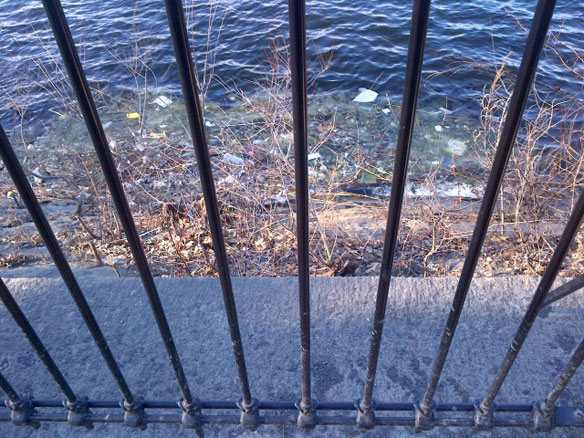
“The unprecedented plastic waste tide plaguing our oceans and shores, can become as limited as our chosen relationship with plastics, which involves a dramatic behavioral change on our part…”
Captions and Photo: © SAF — Coastal Care
Excerpts;
A team of researchers from the U.K. Austria and France has found that not enough work has been done to determine if biodegradable shopping bags are actually environmentally friendly…
Read Full Article; PhysOrg (05-23-2018)
Original Study: “Biodegradability standards for carrier bags and plastic films in aquatic environments: a critical review,” RSOS (05-23-2018)
Here, we review existing international industry standards and regional test methods for evaluating the biodegradability of plastics within aquatic environments (wastewater, unmanaged freshwater and marine habitats). We argue that current standards and test methods are insufficient in their ability to realistically predict the biodegradability of carrier bags in these environments, due to several shortcomings in experimental procedures and a paucity of information in the scientific literature…
“MARINE PLASTIC DEBRIS AND MICROPLASTICS: Global lessons and research to inspire action and guide policy change,” UNEP-05-2016
Microplastics are of particular concern. One study estimated that, on average, every square kilometre of the world’s oceans has 63,320 microplastic particles floating at the surface. Marine organisms – including zooplankton, invertebrates, fishes, seabirds and whales – can be exposed to microplastics through direct ingestion of water and indirectly as predators in food webs. Potential adverse effects of microplastic ingestion include immunotoxicological responses, reproductive disruption, anomalous embryonic development, endocrine disruption, and altered gene expression.
Gender and Plastic Management looked at the differing roles of men and women in plastic use and consumption, identifying women in wealthy regions as important stakeholders in reducing plastics in basic consumer goods…
Biodegradable plastic ‘false solution’ for ocean waste problem; Guardian UK (05-23-2016)
Biodegradable plastic water bottles and shopping bags are a false solution to the ubiquitous problem of litter in the oceans, the UN’s top environmental scientist has warned, speaking at the the UN environment assembly in Nairobi, where 170 countries are meeting and expected to pass a resolution on microplastics later this week…
Plastic and Microplastics in our Oceans – A Serious Environmental Threat; UNEP
Marine litter causes economic adversity for coastal communities and negatively affects the health of both marine life and human beings. It’s a global problem that requires global solutions…
Biodegradable Plastics Are Not the Answer to Reducing Marine Litter, Says UN; UN News Center (11-23-2015)
Widespread adoption of products labelled ‘biodegradable’ will not significantly decrease the volume of plastic entering the ocean or the physical and chemical risks that plastics pose to marine environment, concluded a UN report released today…
Biodegradable Plastics Are as Persistent as Regular Plastics, Study Finds, Yale E360 (03-19-2015)
Plastics designed to degrade don’t break down any faster than their conventional counterparts, according to research published in the journal Environmental Science and Technology…
Plastic pollution: When The Mermaids Cry: The Great Plastic Tide, Coastal Care
“The unprecedented plastic waste tide plaguing our oceans and shores, can become as limited as our chosen relationship with plastics, which involves a dramatic behavioral change on our part…”








